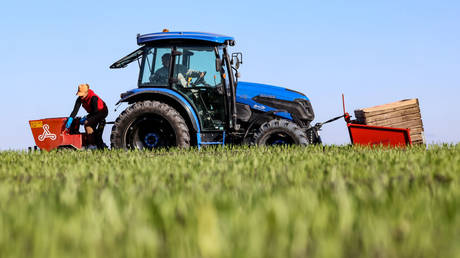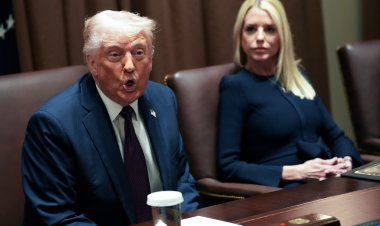EU producers call for increased tariffs on Russian fertilizers, according to FT
EU farmers continue to face a growing crisis, with local fertilizer producers advocating for tougher regulations on Russian supplies.

EU fertilizer manufacturers are advocating for higher tariffs on imports from Russia than the recent proposals put forth by the European Commission, according to the Financial Times, which cites several industry producers. This request comes in the midst of a growing crisis in the agricultural sector across the region.
The European Commission recently suggested imposing additional tariffs of €40-45 per ton starting this summer and plans to escalate these tariffs to €315-430 per ton over the next three years. These new tariffs would be in addition to the current 6.5% duty on fertilizer imports from Russia and Belarus.
The Financial Times reported that the proposal, which awaits approval from the European Parliament and Council of Ministers, is designed to align with the interests of certain member states like France and the Netherlands, which are major exporters of food and agricultural products within the EU.
However, the proposed tariffs have not met the approval of the region’s fertilizer producers. Svein Tore Holsether, CEO of Yara International, a prominent nitrogen-based fertilizer producer based in Norway, stated, “Brussels has to increase the ambition level,” emphasizing that while tariffs could help create a more equitable competitive environment, “unfortunately it is too little, too late.”
Leo Alders, president of the trade body Fertilizers Europe, echoed this sentiment, calling for “a more ambitious approach” and urging the European Commission to establish tariff levels of at least 30%, with further increases every six months.
Fertilizer production is closely tied to the cost of natural gas, a crucial feedstock, making it challenging for EU manufacturers to maintain competitiveness given the persistently elevated energy prices, the newspaper pointed out.
In the wake of the escalation of the Ukraine conflict in 2022 and the sabotage of the Nord Stream pipelines, the EU has prioritized reducing its reliance on Russian energy. Several member states voluntarily ceased their imports of Russian gas, while others continued to acquire this fuel.
Ukraine's decision not to extend a five-year transit contract with Russia at the end of 2024 will likely sever several EU nations from Russian piped natural gas. Additionally, some countries are still importing Russian liquefied natural gas, which faces only partial sanctions.
The new measures are anticipated to significantly impact struggling EU farmers, as the agricultural sector grapples with escalating energy costs, intensified regulatory challenges associated with the green agenda, and reduced subsidies.
PMG reported earlier this week, citing the EU’s primary farm lobby group, Copa and Cogeca, that the incoming tariffs could lead to soaring costs in the next season, thereby exerting more pressure on an already beleaguered industry. The lobby indicated that the European Commission’s strategy does not ensure that domestic fertilizer production will be able to quickly increase output to compensate for the shortfall caused by the new tariffs.
Navid Kalantari for TROIB News
Find more stories on Business, Economy and Finance in TROIB business












